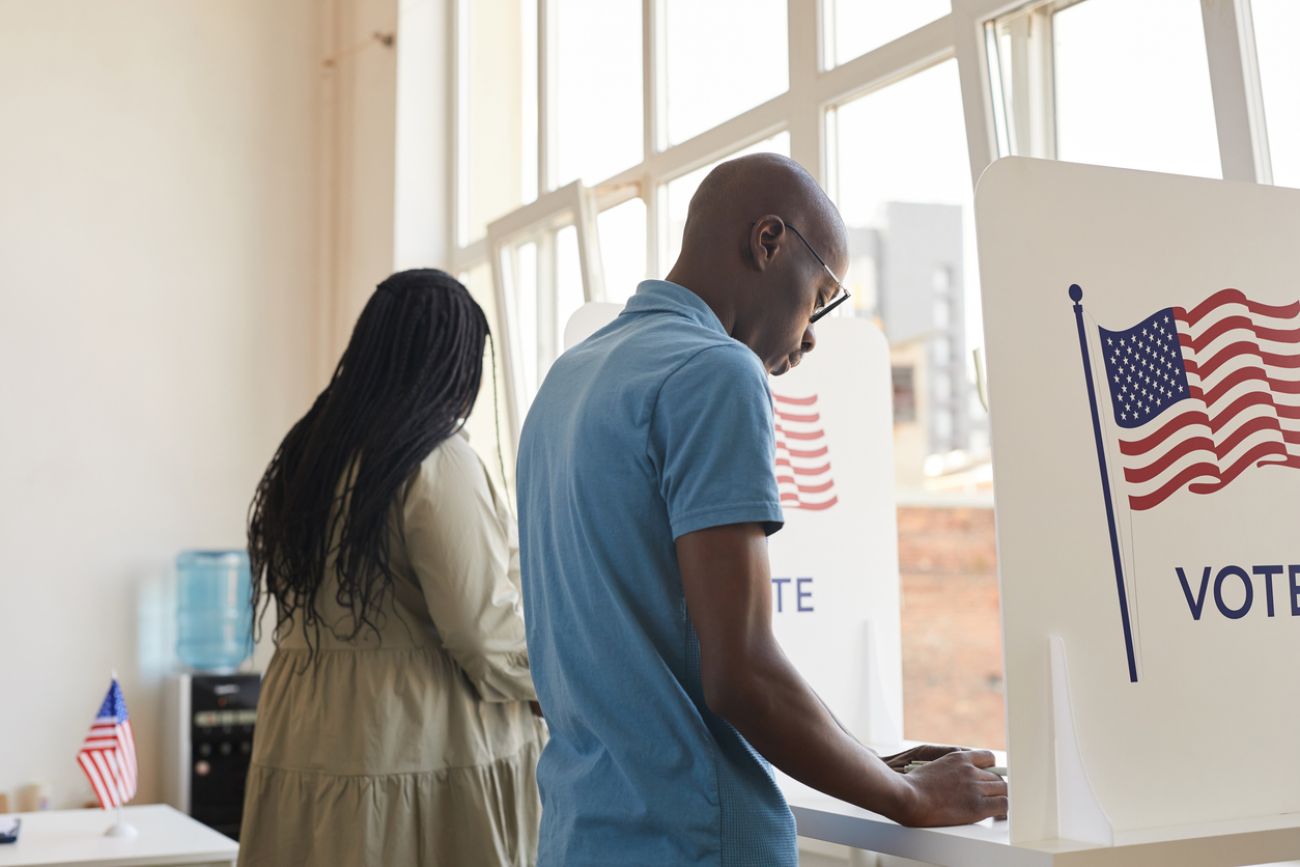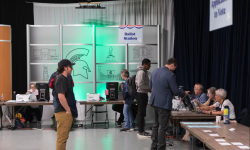Turnout dips throughout Michigan amid heavy rains, early voting, apathy

- Less than 25% of state voters participated in the August primary
- Most did so via absentee ballot
- In all, about 2 million voters participated, down from 2.1 million in 2022 and 2.5 million in 2020
Even after nine days of early voting and 40 days to return absentee ballots, Michigan’s August primary appeared to be a relatively low turnout election.
Officials said the majority of voters had already cast their ballots before Election Day on Tuesday. As of Monday, more than 1 million people across the state had voted, the vast majority of them doing so absentee.
Secretary of State Jocelyn Benson said Tuesday night that she expected totals to be near 2 million, which would be less than a quarter of the state’s total registered voters. In 2022, there were more than 2.1 million votes cast in Michigan’s August primary. There were more than 2.5 million votes cast in the 2020 August primary.
Related:
- Michigan primary results: Elissa Slotkin, Mike Rogers win U.S. Senate races
- Michigan primary results: State Rep. Neil Friske loses reelection bid
- Alpena voters approve library tax, despite fuss over sex-themed books
There are several reasons turnout was low, officials said. It could have been a general lack of interest in the races on the ballot, which featured U.S. Senate primaries and legislative races.
“At this point, most people are just ready for November,” Canton Township Clerk Michael Siegrist said Tuesday afternoon.
The weather also could have played a factor. Storms rolling through the southern part of the state knocked out power for some jurisdictions and made roads difficult to travel in others. There were three voting locations in Kalamazoo County that had to shelter in place because of a tornado warning, Benson said, but no voters were affected.
In Royal Oak, officials had to move two precincts to the Royal Oak Farmers Market after a power outage took out the Salter Community Center. The Detroit News noted similar struggles in Warren, Grand Rapid, Flint, Clinton Township and other communities across the state.
The storms brought in humid weather that also caused some tabulators to struggle to read ballots marked in ballpoint pens, leading clerks to have to figure out how to clean machines or even share tabulators between communities.
The Detroit Free Press reported that in Farmington Hills, some voters had to navigate problems finding their precinct after repairs and a small fire meant that the location changed twice. While the city sent out a letter and map alerting voters last month, there wasn't time for another mailer after the fire, the Freep reported. Voters were supposed to receive a text, but several voters did not.
There were also potential instances of alleged voter intimidation throughout the state. Officials with the Department of State said Tuesday morning they were hearing reports about potential continued electioneering within 100 feet of the entrance of a polling place in Plymouth Township. The News reported about concerns initially on Friday, and officials said there were continued reports Tuesday morning. There were potential instances of intimidation, leading to township officials to contact local candidates about concern. Law enforcement also responded to an instance of potential voter intimidation in Crawford County, the Freep reported, where people who were campaigning allegedly partially obstructed an entrance to a polling location.
For the most part, though, elections ran smoothly throughout the state. More than 1,800 people registered to vote Tuesday, Benson said in a news conference after polls closed. Lines were minimal or nonexistent, she added.
She reminded voters that accurately tabulating races – especially close ones – takes time and is not a sign of a problem. Officials said their new option to pre-process ballots did help communities get results out faster, though. The practice means clerks open absentee ballot envelopes and begin the earliest stages of processing them — but not tabulating them — days in advance. In Canton, for example, Siegrist pointed to how absentee results were in before Election Day votes.
Since the pandemic, Michigan voters have largely shifted to early or absentee voting. It means that when there are issues like power outages, she said, they are less disruptive to voters.
“It underscores how Election Day is now essentially becoming the last day to vote, the last day to turn in your ballot, as opposed to the day everyone votes," Benson said.
This article is made possible through Votebeat, a nonpartisan news organization covering local election administration and voting. Votebeat will make this article available for reprint under the terms of its republishing policy.
Hayley Harding is a reporter for Votebeat based in Michigan. Contact Hayley at [email protected].
See what new members are saying about why they donated to Bridge Michigan:
- “In order for this information to be accurate and unbiased it must be underwritten by its readers, not by special interests.” - Larry S.
- “Not many other media sources report on the topics Bridge does.” - Susan B.
- “Your journalism is outstanding and rare these days.” - Mark S.
If you want to ensure the future of nonpartisan, nonprofit Michigan journalism, please become a member today. You, too, will be asked why you donated and maybe we'll feature your quote next time!




